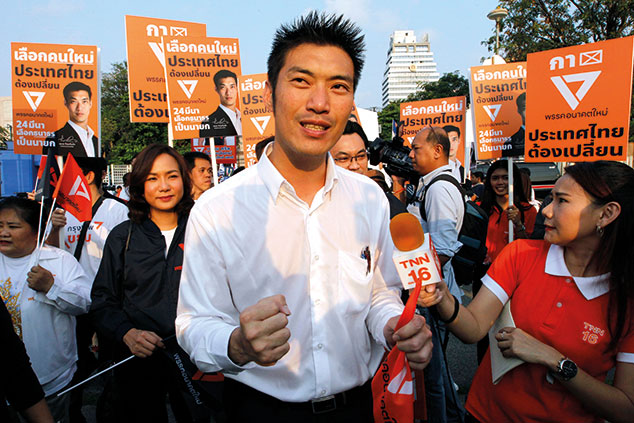
“Nearly five years after Thailand’s 2014 military coup, the populist movement that the army has overthrown twice in a decade is contesting an election on Sunday that its leaders say is rigged against it,” says Reuters. There are 81 parties competing, but “the race has shaped up as one between Pheu Thai and allies versus the pro-army Palang Pracharat party that nominated Prayuth Chano–Cha as prime minister”.
The election is a continuation of the rivalry that has resulted in the military intervening twice, in 2006 to oust Thaksin Shinawatra after he won a second term, and again in 2014 to topple a government that had been led by his sister, Yingluck.
Three main choices
The elections will primarily be a referendum on military rule, rather than on bread and butter issues, says Associated Press. Dissatisfaction, especially among the have-nots, with how the economy is doing may be balanced out by “strong support for the junta from wealthier Thais”, who credit the regime with stabilising the country.
Still, the former will have some impact since “lagging wages, a precarious job market and falling commodities prices have made the daily struggle to get by a key concern, and major parties are wooing voters with promises of cash handouts, farm subsidies, small-business tax breaks and other benefits”.
Thaksin’s party and the military junta may not be the only choices on offer, says Shibani Mahtani in The Washington Post. The Future Forward Party led by “suave billionaire” Thanathorn Juangroongruangkit offers an opportunity to break the “seemingly endless loop” of “coups and corruption charges”.
The scion of a billionaire family, Thanathorn has drawn comparisons to the French president, Emmanuel Macron, and has “quickly acquired a growing cult following among the young urbanites of Bangkok”. His movement is seen as “politically naive and lacking support outside urban areas”, but his party could benefit from tactical voting by former supporters of the banned Thai Raksa Chart party.
Sham elections
Still, despite the expected high turnout, many Thais see the elections as little more than a sham with everything “already decided”, says Shashank Bengali in the Los Angeles Times. There have already been “curbs on free speech, legal moves against opposition groups and new election rules that weaken major parties – while reserving one-third of parliamentary seats for military appointees”.
“The army has virtually guaranteed that it will hold on to power.” And “even if anti-junta parties scrape together a majority, a judiciary and election commission loyal to the army could block the formation of a civilian-led government or appointment of a new prime minister”.
It’s true that the elections are a long way from being “free and fair” by Asian, let alone Western, standards, says Kiat Sittheeamorn in The Diplomat, and seem designed to make sure that the junta wins whatever happens. Still, it would be a mistake to give up on them. History shows that “we should make use of every democratic opening – no matter how limited – to push toward a more democratic direction”. The large number of first-time voters means that “these elections may just surprise us”.